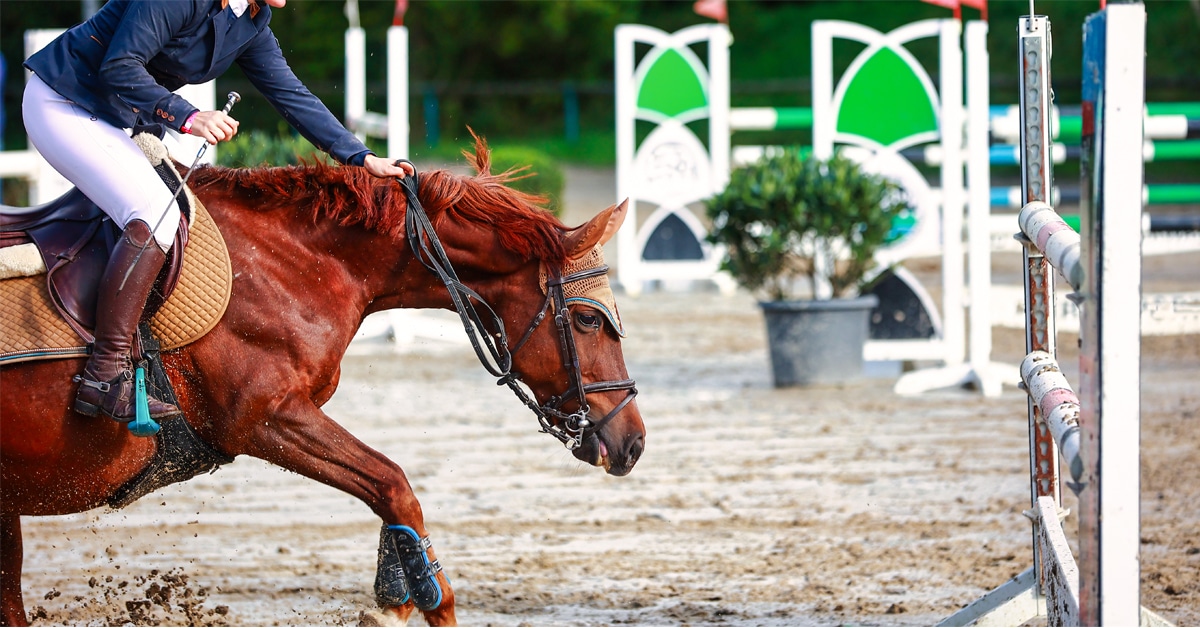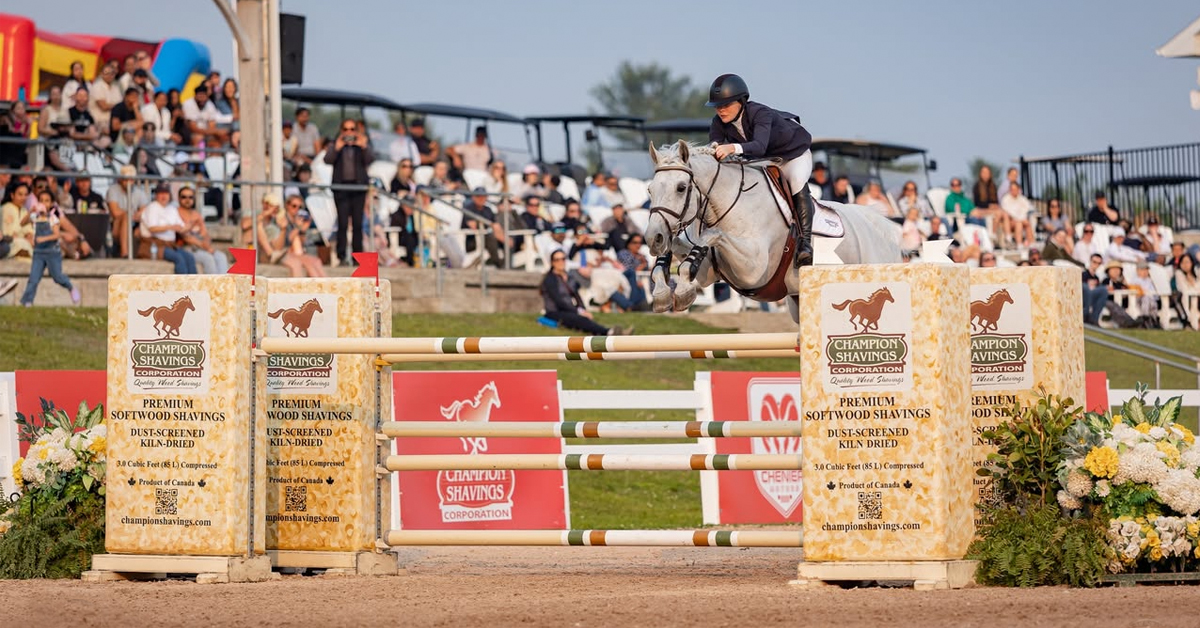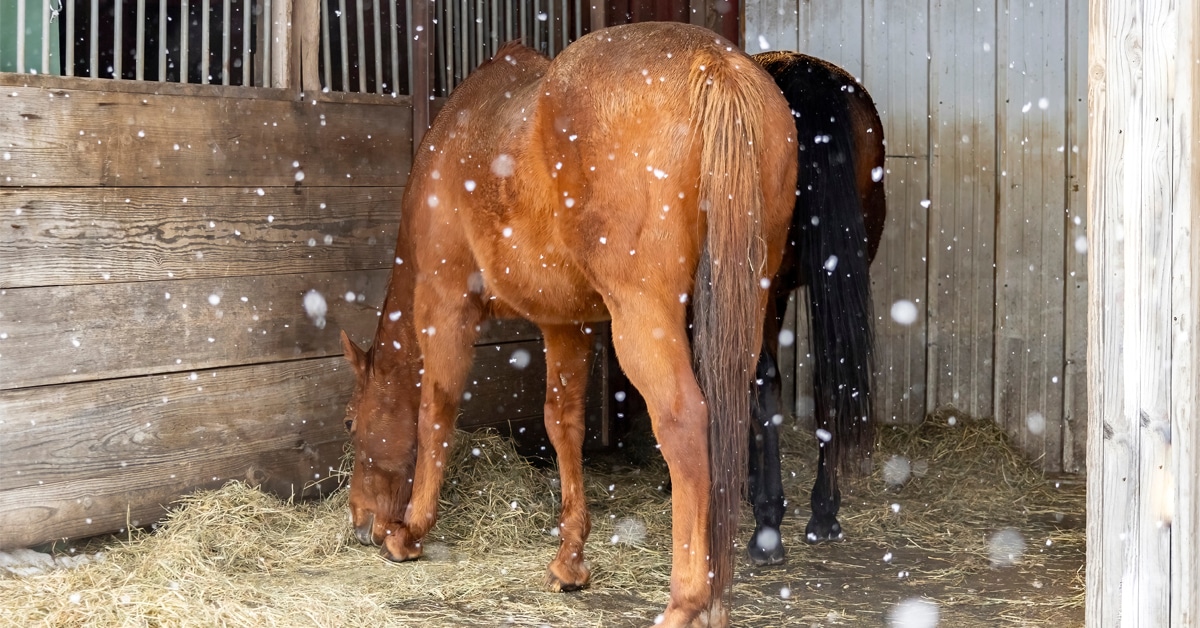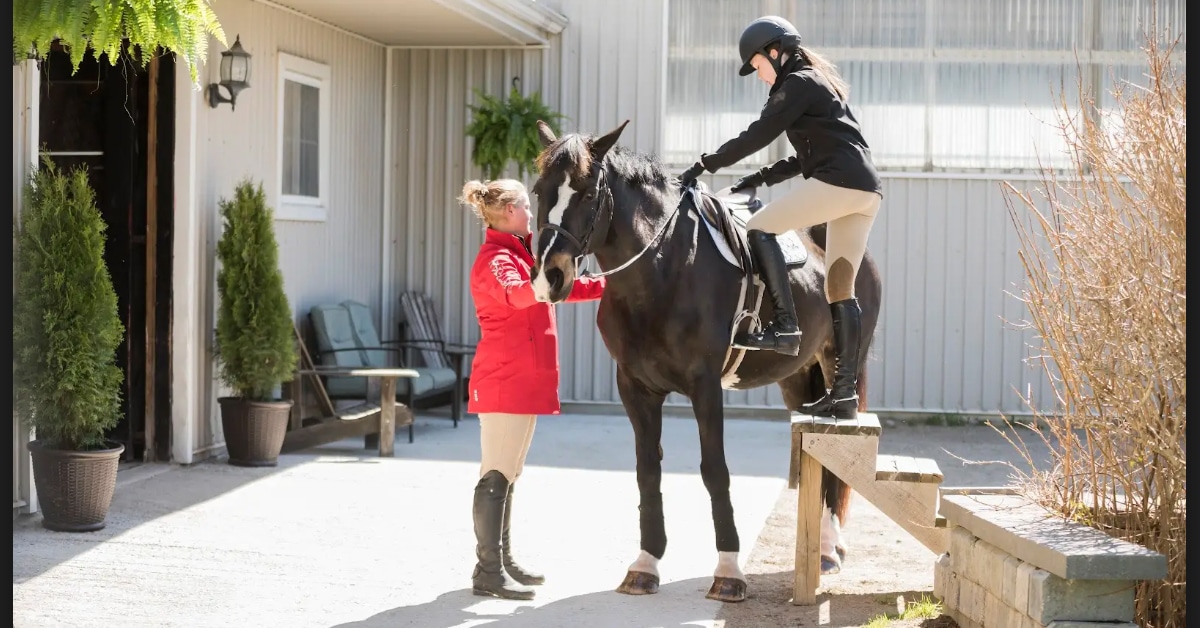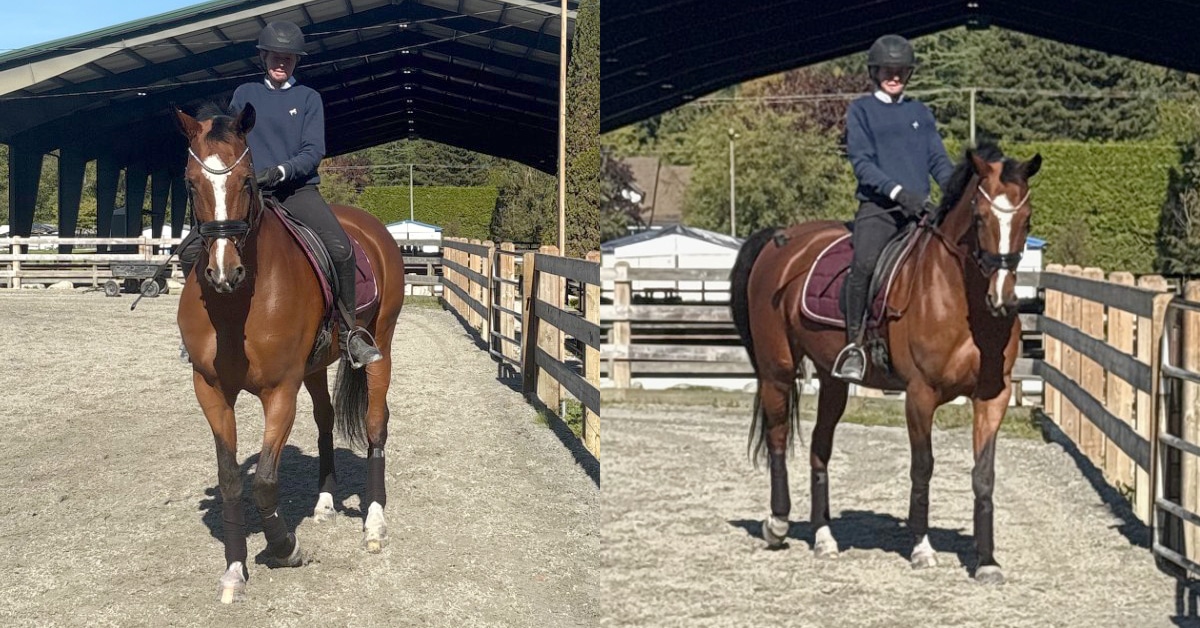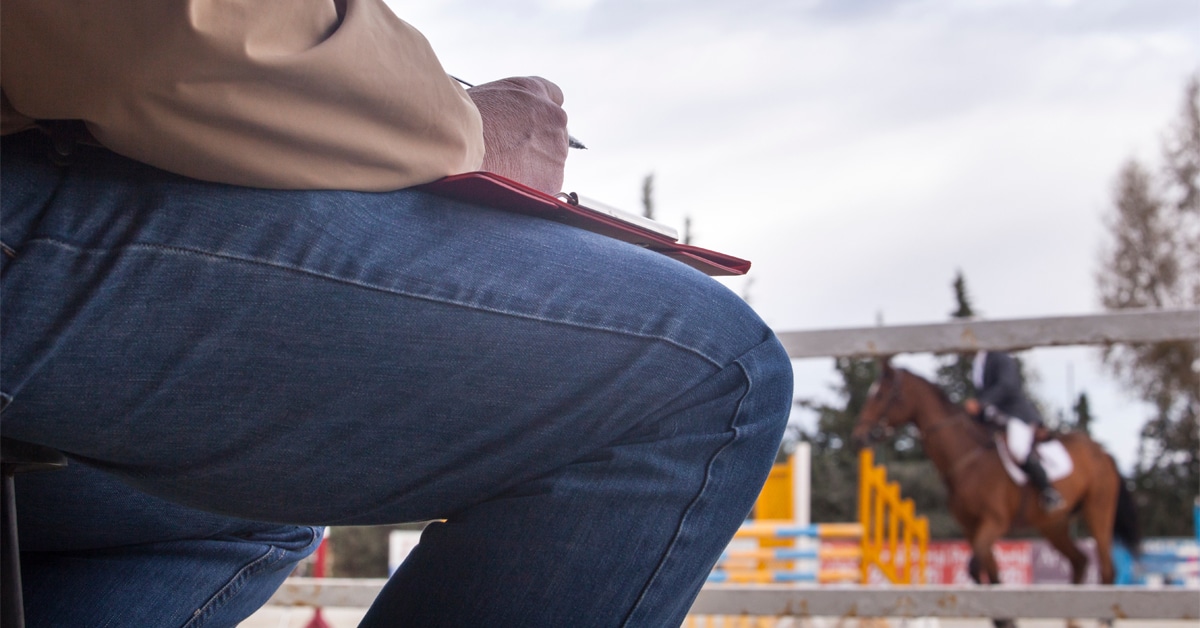The COVID-19 pandemic and subsequent lockdown has caused disruptions in the day-to-day life of nearly everyone on the planet. Even the equestrian world has been shaken to the core with event cancellations and barn closures.
Perhaps the most vulnerable victims are the boarding and lesson barns, many who exist on a shoestring and depend on lesson fees to keep them afloat. With that income stripped away, the fate of the hard-working school horses is in jeopardy as bills loom with no money coming in to buy feed and supplies.
Jen Sweet, owner of Lions’ Bridge Stables in Ayr, Ontario, knows well the feelings of uncertainly faced with 30 school horses in her care and a shutdown with no end in sight. “In the short term I’m worried about the schoolies; in the longer term I’ll worry about the boarding barns like myself, she says. “Right now we’ve to get food into the school horses’ mouths. We’re all too hand-to-mouth to let it run any longer than a few weeks.
“We are different from many industries in that we cannot just lock our doors and walk away,” she explained. “We have horses that need to eat, need to have their stalls cleaned and bedded, need regular and consistent exercise, need veterinary and farrier care, and all of those things are expensive. In addition, we have staff to pay, mortgages or rent, hydro, insurance, and our own personal expenses. We are in trouble. For those of us with boarders, the basics will be covered for as long as they are able to continue to pay us, but for those of us with primarily or only lesson horses, the reality is that we will have no funds available to care for our horses or ourselves in the very near future. The future impact will remain to be seen on all sectors of our industry.”
In response to the problem, Jen has launched an initiative called Helping The Schoolies which is bringing together hundreds of stable owners and managers from across Ontario to show their solidarity and get help, or help each other. In addition to a website put together thanks to the talents of Jess Blackwood (http://helpingtheschoolies.com) where you sign up and sponsor or foster a schoolie and gain access to helpful resource links. Many barns are now running their own “sponsor a schoolie” programs as well ‒ “There will be a package on the website that farms can use to run their own if they prefer that route.”
“Myself, I have a schoolie getting dropped off this afternoon that’s going to live with me until [the lockdown] is done. It’s not a lot, but it’s a little bit, right? It’s one mouth for me, it’s one less for them. That helps. If somebody has a private farm and can take a horse home that they can hack a little bit this summer, how great would that be?”
These concerns have been received at both Equestrian Canada and Ontario Equestrian and both have been very busy fielding calls from concerned equestrian businesses looking for support.
“From an Ontario perspective we are going to do everything we can to talk to government at all levels to ensure we are on the agendas to access any funding that is available for our sector,” commented Tracey McCague-McElrea, the executive director for OE. “We really want to show these bodies how much this industry contributes to the economy.”
This is difficult, however, since a review of the economic impact of the equestrian industry in Canada hasn’t been done in over a decade. Just this week, Equestrian Canada launched a survey for horse farms and equestrian facilities to report the financial implications of COVID-19. This data will be presented to federal agencies and corporations to ensure that equine farms and equestrian facilities can access support.
“The industry has been bad at gathering information and statistics,” noted McCague-McElrea. “For Farm Credit Canada, for example, you need a registered business but only about 30% are registered. In order to access any funding that might be available, farms need to have detailed accounting that includes a breakdown of annual revenue and expenses. You must be able to prove that you are a viable business and all accounting needs to be in order, which is not always done on farms.”
Sweet’s group is also busy gathering information. “I’m trying to gather statistics so that we can give them some real numbers of what we’re looking at,” Jenn says, adding that there are currently 795 members in the Facebook group, 97 farms which have submitted surveys, seven which have offered to either sponsor multiple horses or offered monetary and/or physical donations (feed, supplies, etc). Eight farms so far have filled in sponsor aid applications involving six or more horses each.
Once the data is gathered, EC and the provinces will approach a variety of major organizations to make them more aware of the impact of equestrian industry. “We are working through how we are going to approach all these agencies and do so in a coordinated way with EC,” said McCague-McElrea. “There is strength in numbers.”
“This is a global issue,” added Sweet. “We have no options. I think we have to shut down, but we also have to figure out how we don’t end up with 500 horses dead in two months.
“What we’re trying to do is give people something that they can use, whether it’s information to give to their clients or to sponsors or the general public or suppliers, just so that people understand it’s not just one barn that did their finances poorly so they need help. It’s everybody.”
Sweet concludes, “It’s nice to see a lot of people working together for a common goal. In this industry we all function so independently. And when something like this happens, if you think you’re alone with it, it’s too much.”
The Latest
